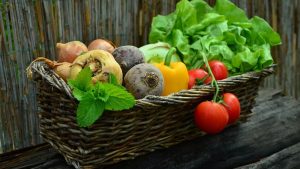Is it possible for a city to produce a large part of its fruit and vegetable needs without depending on greater international production circuits? According to a team of researchers from the Institute for Sustainable Food at the University of Sheffield (U.K.) the answer is a resounding “YES”.
The research team in question investigated the unexpressed potential of urban farming by using the city of Sheffield as a case study. The results where published in Nature Food.
Urban areas appear to have a high potential for horticultural food production: the problem lies in identifying spaces suitable to its integration. With this premise, the researchers showed that there is sufficient land available for horticulture in the cities of the United Kingdom, more than enough to meet the population’s fruit and vegetable needs.
The team mapped existing urban farms in the city of Sheffield, along with other green areas (parks, gardens, vegetable gardens, flower beds) deemd suitable for crop-growing. They thus calculated that space availability for urban farming could increase from the current 250 square foot per inhabitant currently producing urban crops to 1000 square feet, which would be enough to supply 709 thousand inhabitants with five portions of fruit and vegetables per day… more than the population of Sheffield.
More realistically, if horticulture were practiced in at least 10% of home gardens and 10% of the available land identified, it could feed 15% of Sheffield’s population for a year. The study also investigated the possibility of expanding the presence of urban gardens on the rooftops and estimated that if at least 10% of the identified roofs hosted, for example, hydroponic tomato crops, the yearly requirement would be bumped up by a further 2% of the inhabitants.
Designing urban farms capable of supplying a city’s needs requires agricultural, IT, engineering and architectural knowledge; many aspects would need to be carefully considered in order to create intelligent and sustainable systems capable of, for example, using renewable energy and rainwater irrigation, as well as being connected to one another for a more efficient a production network. A social and cultural challenge that could help not only the United Kingdom, but the whole world.
Source: Nature Food








